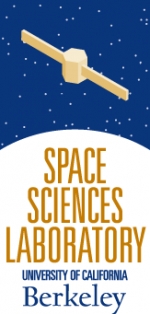Displaying items by tag: SETI
Space Sciences Laboratory (SSL)
The Space Sciences Laboratory (SSL) is an Organized Research Unit of the University of California, Berkeley.
It is located in the Berkeley Hills above the university campus. It has developed and continues to develop many projects in the space sciences.
SSL developed and maintains the SETI@home project which pioneered the application of distributed computing to the space sciences.
It created the related projects Stardust@home and BOINC.
It is home to the Space Physics Research Group, which does Plasma physics research.
It has developed many satellite missions and serves as a ground station for those missions. Some of the satellites it has developed are:
- The Reuven Ramaty High Energy Solar Spectroscopic Imager (RHESSI) satellite
- The Time History of Events and Macroscale Interactions during Substorms (THEMIS) satellite constellation
- The Fast Auroral Snapshot Explorer (FAST)
- The Cosmic Hot Interstellar Plasma Spectrometer (CHIPSat)
- The Extreme Ultraviolet Explorer (EUVE)
- The Infrared Spatial Interferometer (ISI)
SSL does science education outreach via the Center for Science Education (CSE).
SETI Institute
The mission of the SETI Institute is to explore, understand and explain the origin, nature and prevalence of life in the universe. The acronym SETI means Search for ExtraTerrestrial Intelligence.
The SETI Institute is a private, nonprofit organization dedicated to scientific research, education and public outreach.
The Institute comprises three centers, the Center for SETI Research, the Carl Sagan Center for the Study of Life in the Universe and the Center for Education and Public Outreach. It was founded in 1984.



